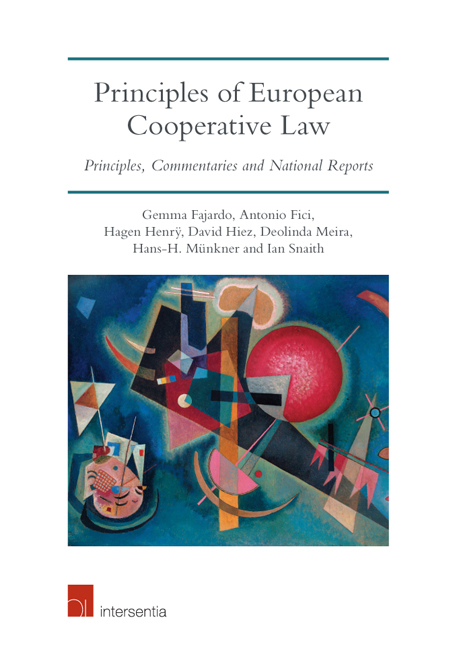Book contents
- Frontmatter
- Foreword
- Contents
- List of Abbreviations
- Introduction
- Part I Principles of European Cooperative Law and Commentaries
- Chapter 1 Definition and Objectives of Cooperatives
- Chapter 2 Cooperative Governance
- Chapter 3 Cooperative Financial Structure
- Chapter 4 Cooperative Audit
- Chapter 5 Cooperation Among Cooperatives
- Part II National Reports
- About the Authors
Chapter 4 - Cooperative Audit
from Part I - Principles of European Cooperative Law and Commentaries
Published online by Cambridge University Press: 22 September 2018
- Frontmatter
- Foreword
- Contents
- List of Abbreviations
- Introduction
- Part I Principles of European Cooperative Law and Commentaries
- Chapter 1 Definition and Objectives of Cooperatives
- Chapter 2 Cooperative Governance
- Chapter 3 Cooperative Financial Structure
- Chapter 4 Cooperative Audit
- Chapter 5 Cooperation Among Cooperatives
- Part II National Reports
- About the Authors
Summary
(1) Cooperatives are obligated and entitled to be audited.
(2) The specific aim of cooperative audit is to verify that cooperatives pursue their objectives as defined by the law and their statutes in accordance with section 1.1, and that their structure and activity are consistent with their identity as cooperatives.
(3) Cooperative audit must be conducted by specifically qualified and independent auditors in forms that ensure the autonomy of cooperatives and are consistent with their specific features.
(4) Cooperatives are also obligated and entitled to be financially audited as prescribed by law, according to the nature and scale of their activities, their size, and the need to protect creditors, and other stakeholders in addition to the members and the pursuit of the cooperative objective.
COMMENTARY
Introduction – Overview of Chapter 4
In this chapter, the focus is on audit of cooperative societies as a form of external control supplementing internal audit and member control. Comparing company audit and audit of cooperative societies reveals similarities and differences. As in the case of audit of companies and other commercial enterprises, cooperative audit assesses operational efficiency and economic results, including performance of the management (prudence and care) and compliance with the law. Th is is done in the form of financial audit. Cooperative audit is different from company audit because, besides assessing the operational efficiency of the cooperative enterprise, the auditors must also assess member-oriented effectiveness by means of management audit in addition to financial audit.
The principles of cooperative audit are derived from national laws and regulations governing audit of cooperative societies in seven EU member states: Finland, France, Germany, Italy, Portugal, Spain and the United Kingdom (UK). In Italy, the Constitution (art. 45) expressly states that the law ensures, through appropriate controls, the character and purposes of cooperatives. Th is includes ensuring respect of their distinct legal nature as laid down in the organisational law and verifying that cooperatives observe the rules on their function (mutual purpose) and structure (democracy, member participation, member control).
- Type
- Chapter
- Information
- Principles of European Cooperative LawPrinciples, Commentaries and National Reports, pp. 97 - 118Publisher: IntersentiaPrint publication year: 2017
- 2
- Cited by



